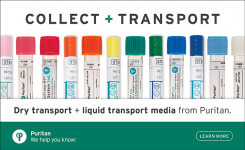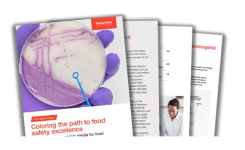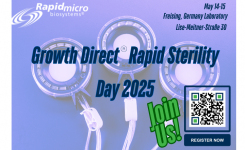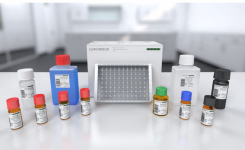A new survey of Americans currently employed in the refrigerated and frozen food industry indicates strong appreciation for the roles high pressure processing (HPP) plays in producing safe foods with cleaner labels and longer shelf lives. HPP is a rapidly growing non-thermal food preservation process that inactivates harmful bacteria and spoilage organisms right within product packages. The online industry survey was commissioned by Universal Pasteurization Company LLC, the country’s largest HPP outsourcing service provider for food and beverage producers.
Survey Findings
More than half of the survey respondents (59 percent) were familiar with HPP, and 57 percent characterized their companies’ use of the technology as some, growing or substantial. Almost no one indicated any level of dissatisfaction with HPP within their organizations, and survey takers also believed their retail and foodservice customers were usually favorably disposed to HPP, but often unaware if or when it was being utilized.
The most recognized benefits of HPP were its abilities to (1) make food safer by killing pathogens and (2) extend shelf life. Both scored, on average, above a 4 on a 5-point scale. Other benefits cited include (in descending order) the ability to: pasteurize products within their packaging; preserve nutrients within the food; develop cleaner-labels; and reduce food waste. When asked about potential barriers to HPP adoption, respondents cited the cost of equipment and cost of service as top concerns. Some respondents also acknowledged that HPP wasn’t compatible with their type(s) of food.
“The survey results demonstrated that refrigerated and frozen food manufacturers greatly approve of HPP and the ways it can benefit their products,” said Mark A. Duffy, CEO of Universal Pasteurization Company LLC and Universal Cold Storage LLC. “It aligns with other research that suggests that HPP is the most promising food technology over the next decade, and echoes the excitement we heard for the technology at the recent HPP Summit. Still, it’s clear that there’s room for improvement when it comes to expanding awareness for HPP within the larger supply chain.”
The survey did not measure HPP in isolation, but also compared its perceived advantages in food quality, safety and waste with seven methods of pasteurization, including thermal, radiation and membrane filtration processes. HPP scored noticeably above all other options for its impact on food quality. It earned an average of 3.85 points on a 5-point scale and received the most five-star ratings (out of five) for the category. As it pertains to food safety, HPP’s score of 3.83 points trailed only the score of 3.95 given to ultra-high temperature pasteurization. As it relates to food waste, a category more than three-quarters of the survey field said was “somewhat important” or “very important” to them and their company, HPP again scored best in terms of having a positive impact on food waste with a mark of 3.62 of 5. The number of five-star ratings given to HPP for its impact on curbing food waste was again the most among the various technologies.
The survey was conducted in September and October 2016. Roughly one-third of respondents came from companies that produce meat, poultry and seafood (33.3 percent), another third came from juice or beverage firms (29.8 percent), and the remainder was from other companies, including those that make wet salads/dips/sauces, dairy products, soups and various, other ready-to-eat foods.
For more info visit - www.universalpasteurization.com
















